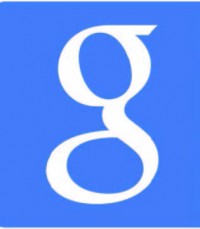
The European Union’s competition regulator on Wednesday accused Google of illegally abusing its dominance of the Internet search market in Europe by favoring its own comparison-shopping product when consumers shop online.
The case could cost the tech firm billions in fines or even force Google to make significant changes to its business in Europe. It also revives memories of Microsoft’s decade-long antitrust fight with the EU. That case ended in 2009 with Microsoft paying over $2 billion in fines to the EU’s competition commission.
EU Competition Commissioner Margrethe Vestager said Wednesday in a statement unveiling an investigation that she is “concerned that the company has given an unfair advantage to its own comparison shopping service, in breach of EU antitrust rules. Google now has the opportunity to convince the commission to the contrary.”
Vestager also is probing Google’s Android mobile operating systems, apps and services. Vestager said that she wants to “make sure the markets in this area can flourish without anti-competitive constraints.”
Google accounts for 90% of all Internet searches in Europe and the commission alleges the Internet giant broke antitrust regulations by siphoning traffic from its competitors to its own services.
The commission said Google “may be artificially divert(ing) traffic from rival comparison shopping services (to its Google Shopping) and hinder their ability to compete.”
This is the first time a regulator has filed formal antitrust charges against Google.
In a blog post, Amit Singhal, senior vice president of Google search, said: “We respectfully but strongly disagree with the need to issue a Statement of Objections and look forward to making our case over the weeks ahead.”
In a memo to employees that was leaked to the re/code technology website on Tuesday, Google said it had a “very strong case” against the charges.
Part of its defense: that Google offers consumers a quicker, more direct service.
“While Google may be the most used search engine, people can now find and access information in numerous different ways — and allegations of harm, for consumers and competitors, have proved to be wide of the mark,” Singhal wrote in the blog post published Wednesday.
Google also defended its Android platform in a separate blog post, claiming its open-source operating system benefits consumers.
“The European Commission has asked questions about our partner agreements,” says Hiroshi Lockheimer, vice president of engineering for the Android division. “It’s important to remember that these are voluntary — again, you can use Android without Google — but provide real benefits to Android users, developers and the broader ecosystem.”
Longtime Google critic Thomas Vinje, legal counsel and spokesman for FairSearch Europe, applauded the decision.
“The Commission’s actions are signifcant steps toward ending Google’s anti-competitive practices, which have harmed innovation and consumer choice,” he said in a statement. “More than 30 companies and consumer organizations fled complaints concerning Google’s abuse of its dominance in search. Google’s abuses have devastated rivals, from mapping to video search to product price comparison.”
He added: “While the Commission’s action concerning the search practices of Google is very significant, it has previously identified other problematic areas that are not covered, and we look forward to those being addressed in due course.”
The EU has been investigating Google for five years. Google nearly settled the case without any charges last year but the deal fell apart over objections from ministers in France and Germany and powerful tech groups.
Over a period of 10 years, Microsoft was fined by the European Commission for monopolistic business practices related to the software giant’s operating system.
Then-EU Competition Commissioner Neelie Kroes argued that consumers in Europe would benefit from having a choice of Internet browsers bundled with the firm’s Windows software. Microsoft was fined as late as 2013 for failing to comply with a settlement that mandated it offer easier access to the products of its rivals.
Vestager did not say how long the commission intends to spend conducting its investigations or how long Google has been given to reply to the allegations.
“To us the most important risks associated with an eventual long term antitrust proceeding would be related to the risk that it could consume valuable management bandwidth, and impose limitations on Google’s ability to innovate in search in Europe for years to come,” Sanford C. Bernstein analyst Carlos Kirjner wrote in a research note.
RBC Capital Markets analyst Mark Mahaney says the prospect of a lengthy antitrust battle has been an “overhang” on Google shares for a few years.
“That said, the EU Antitrust Charges Overhang (EUACO) is now ‘official,'” he wrote in a research note. “And we believe this has negative implications for Google shares.”
Google shares are trading down about 1% to $523.90.





Be the first to comment